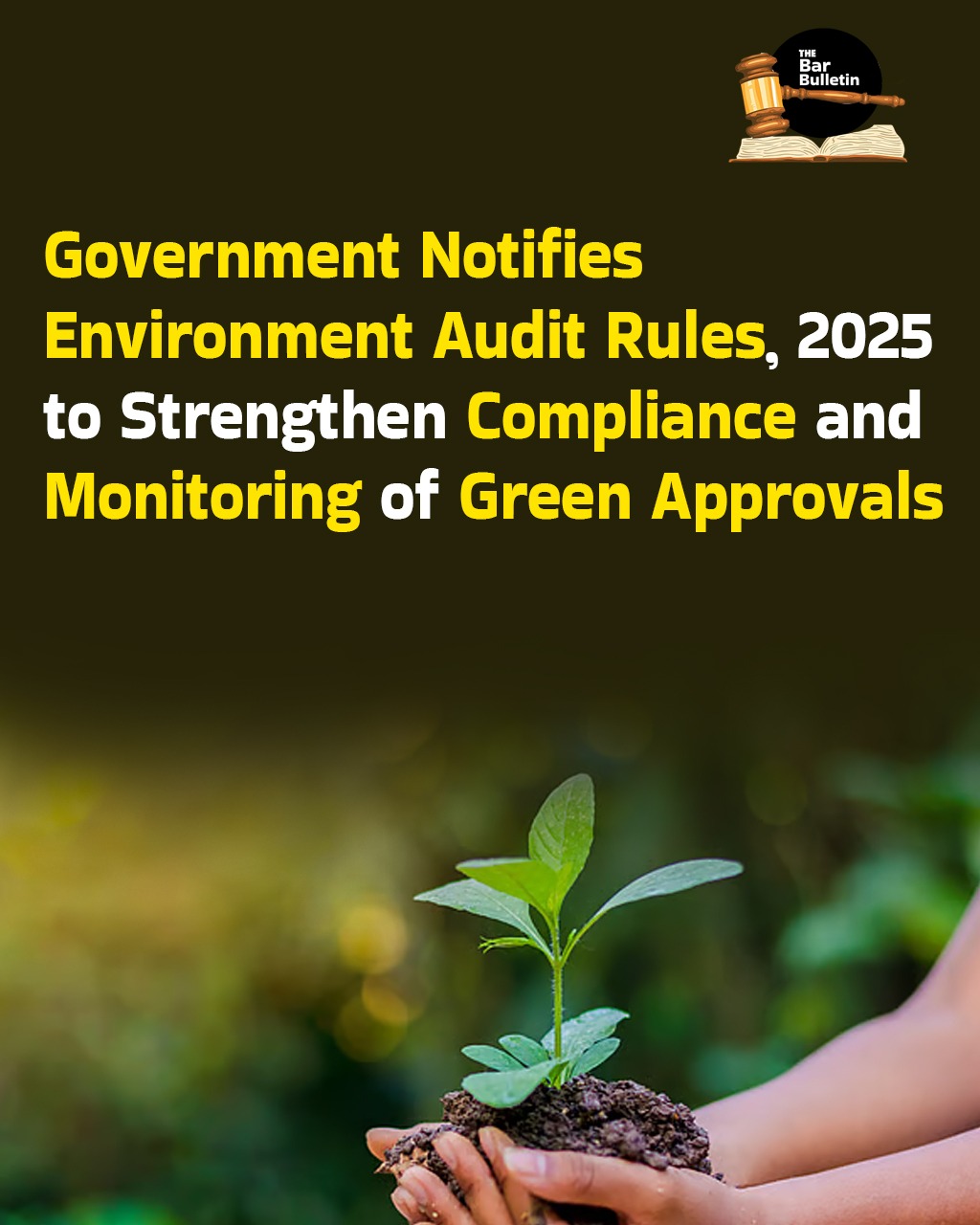On 29th August 2025, the Ministry of Environment, Forest and Climate Change (MoEFCC) notified the Environment Audit Rules, 2025 under the Environment (Protection) Act, 1986. These rules formalize a structured framework for conducting environment audits of projects, activities, and processes approved under various environmental laws, including the Air Act, Water Act, Forest Conservation Act, and Wildlife Protection Act.
The notification emphasizes the importance of regular environmental audits to ensure compliance with stipulated safeguards, prevent violations, and verify adherence to environmental standards. It establishes the concept of Registered Environment Auditors (REAs), who will be certified and registered by designated agencies notified by the government. Their responsibilities include conducting audits, sampling emissions and effluents, reporting violations, verifying self-compliance reports, and preparing audit reports.
Key provisions include:
• Certification & Registration: Auditors to be certified through Recognition of Prior Learning (RPL) or the National Certification Examination (NCE) and registered for a period of five years.
• Roles & Powers of REAs: Authority to conduct site visits, collect samples, access documents, and compute environmental compensation in case of violations.
• Designated Agencies (EADA): Empowered to certify, register, monitor, and discipline auditors, as well as develop training and maintain a public online register.
• Code of Conduct & Conflict of Interest: Auditors must follow ethical standards ensuring independence, confidentiality, and avoidance of financial or professional conflicts.
• Steering Committee: Constituted to oversee implementation, monitoring, and amendments of the rules.
• Integration with Green Credit Rules, 2023: Audits will provide inputs for green credits, ESG ratings, climate finance, and carbon trading.
The government clarified that this framework will supplement, not replace, existing compliance mechanisms of pollution control boards and other regulatory bodies. It aims to enhance environmental accountability, support India’s climate commitments under LiFE (Lifestyle for Environment), and promote sustainable development.

